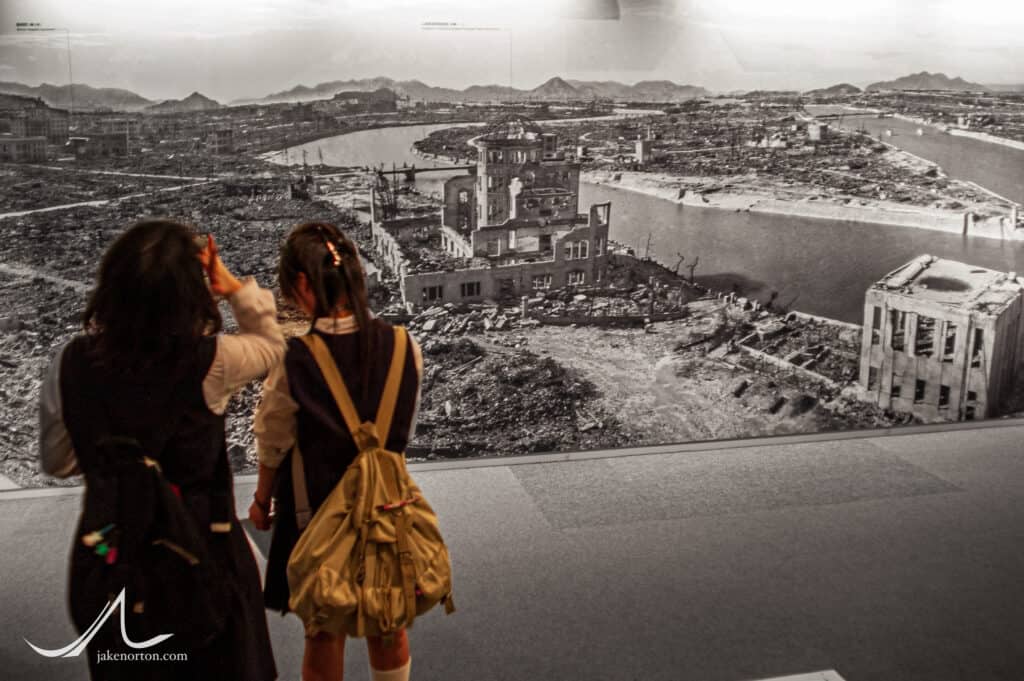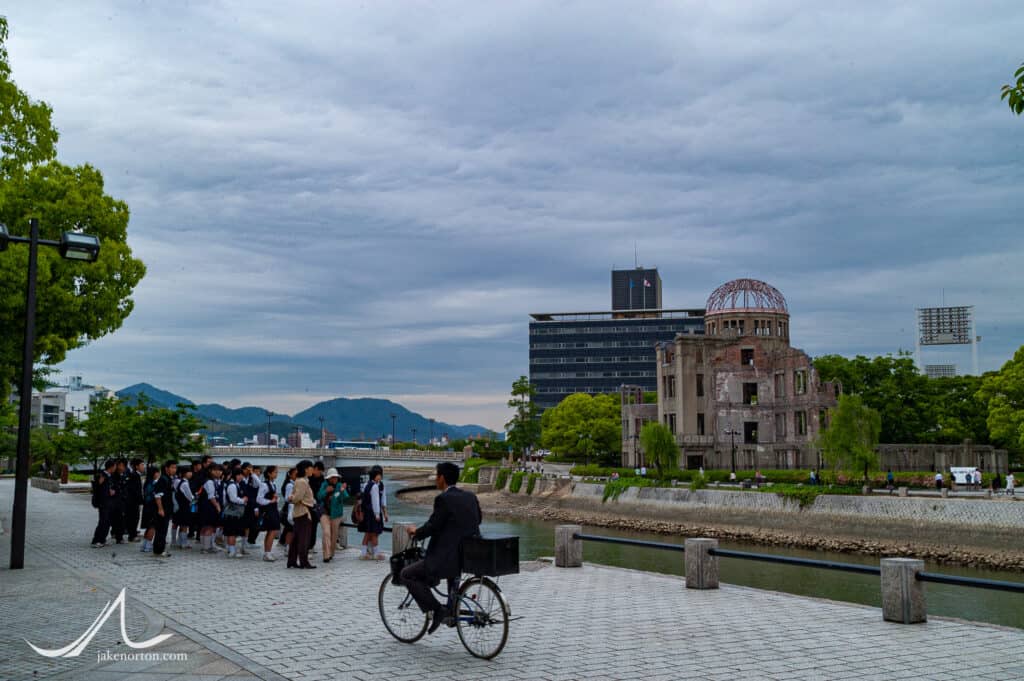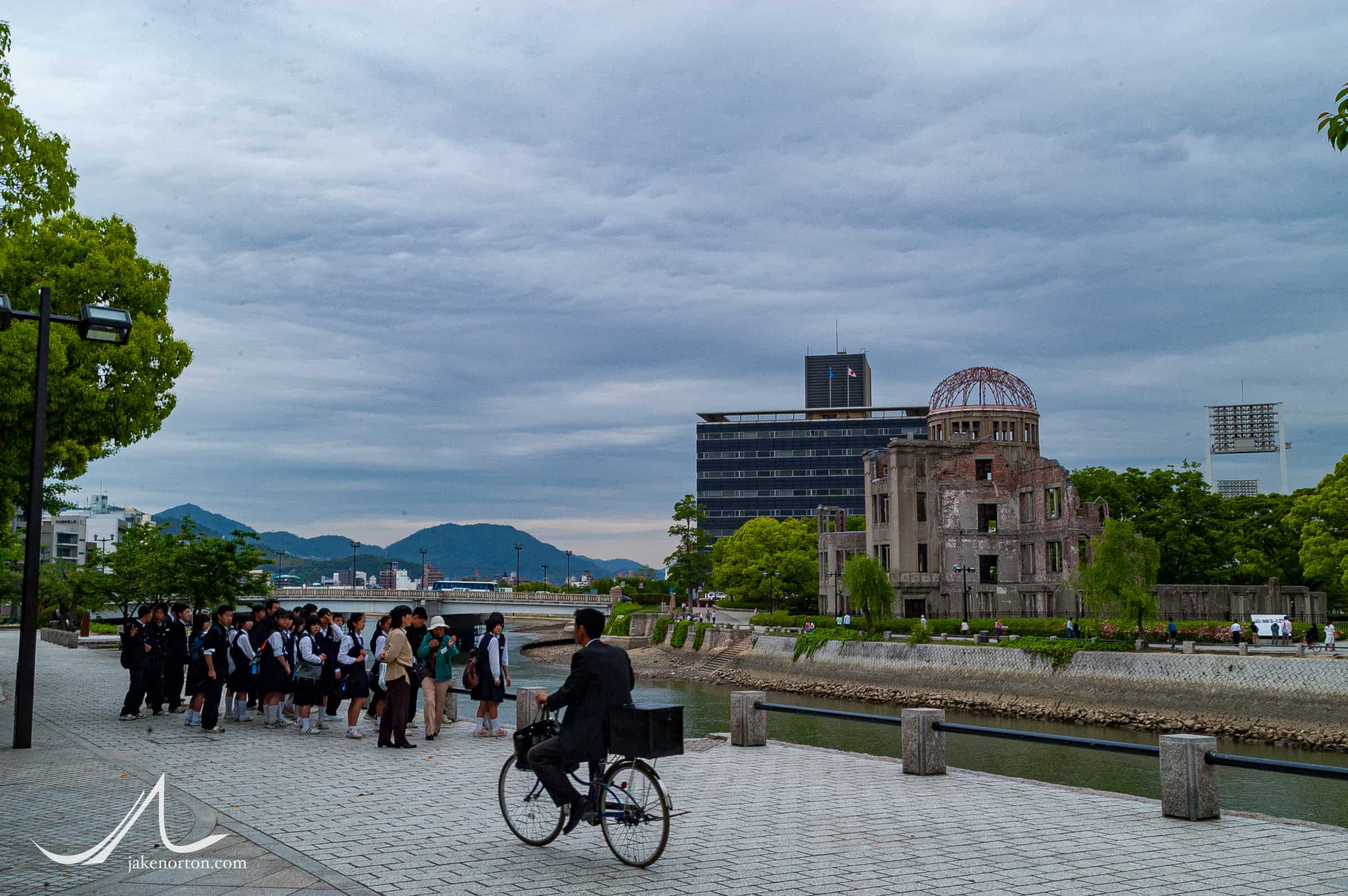Note: I've not yet seen the new movie, Oppenheimer, but hope to soon. It will doubtless cover it's namesake's famous quote, discussed below, and his experience of the aftermath of Trinity, Hiroshima, and Nagasaki. As the film comes out today, and this is something I've thought much about for decades, here's a Thursday Thought on the subject. Enjoy.
“Class, just a moment,” he said in his soft Australian accent. “Just a quick story before you depart.”
You never knew what to expect with Professor Doug Fox’s stories at the end of his lectures, but you’d always learn something, and usually be surprised. An ordained minister in the Congregational Church, Doug was not who you’d expect to be teaching advanced courses on Hinduism and Buddhism in Colorado, but there he was.

We had just wrapped a three hour, intense, fascinating lecture on the Hindu philosophy of Advaita Vedanta and the concept of non-dualism, oneness.
“It was July 1945, in the no man’s land of the Jornada Del Muerto Desert in New Mexico. A bomb had just gone off,” Doug recounted. “But this? This was no ordinary bomb. And the man who built it, who made it happen? He was there, watching, witnessing, pondering.”
Doug moved between our gathered desks, staring intently at us all, communicating the gravity of the story.
“That man was Robert J. Oppenheimer. That bomb was the first atomic bomb. Three weeks later its cousins would be dropped on Hiroshima and Nagasaki, annihilating over 100,000 people and ushering to a close the darkest chapter of humanity, World War II.
“But on that day in New Mexico, Oppenheimer didn’t cheer or cry. He didn’t clap or wail. Instead, he thought about Hinduism of all things, about the Bhagavad Gītā, and about this line in particular that you’ll of course remember as Krishna speaks to Arjuna,” A sly smile crept across his face, he knowing full well none of us would remember it. “‘Now, I am become Death, the destroyer of worlds.’”

Doug paused for an uncomfortably long time. The room was pin-drop quiet.
“Knowing what you all know, why do you think Oppenheimer thought about that book, that line, those concepts, while witnessing what he had created? Think on that. You’re dismissed.”
We knew the world would not be the same. A few people laughed, a few people cried. Most people were silent. I remembered the line from the Hindu scripture, the Bhagavad-Gita; Vishnu is trying to persuade the Prince that he should do his duty, and to impress him, takes on his multi-armed form and says, 'Now I am become Death, the destroyer of worlds.' I suppose we all thought that, one way or another.
- J. Robert Oppenheimer
Like so many things in history, we can’t know for sure what went through Oppenheimer’s mind on that July day in 1945. We’ll never know precisely what he was thinking and why, as he watched his creation - truly a destroyer of worlds - incinerate and toxicate the desert with a monumental ball of fire.
But, we can make some educated guesses.
Oppenheimer was not only a gifted physicist, but also well-educated in philosophy and Eastern Religions, studying both at Harvard in the 1920s. Later, while a professor at Berkeley, he learned Sanskrit so he could read the classic Hindu scriptures in their original format. He kept by his desk a well-worn copy of the Bhagavad Gītā - which he described as one of the most important books of his life - and adored TS Eliot’s The Waste Land, an epic poem inspired by Indian philosophy.
When hearing Oppenheimer’s quote from the Gītā, Western minds tend to read regret, remorse into the statement. Without doubt, there must have been some - perhaps much - of that for Oppenheimer. His role in The Manhattan Project and its eventual outcomes could not but induce regret.
I think when you play a meaningful part in bringing about the death of over a hundred thousand people and the injury of a comparable number, you naturally don’t think of that as, with ease. I believe we had a great cause to do this, but I do not think that our consciences should be entirely easy…
- Robert Oppenheimer, CBS interview, 1965
Regret, sadness, deep remorse is there indeed. It is indelible on Oppenheimer’s being, in his mannerisms and speech. But, I think there is something more, something he derived not from his studies of physics, but of philosophy.
Hi famous quote - I am become death - comes at a critical part of the Bhagavad Gītā when the warrior prince, Arjuna, is questioning his willingness to go to war, to engage in battle against his cousins, his countrymen, and to inflict horrific suffering on so many. His charioteer, Krishna (who is actually Vishnu in disguise) implores his to follow his duty, his dharma, which is to be a warrior, and thus to fight.
Dharma is a complicated word and concept. In modern context, people use it to denote teachings one should follow. But dharma as used in the Bhagavad Gītā has its roots in an older, deeper philosophical premise: the Vedic concept of Ṛta. Similar to Plato’s arete (both in meaning and sound) in the Allegory of the Cave, Ṛta is nearly impossible to translate into English, but roughly it refers to the ultimate cosmic order of existence and, within that order, the interdependence on each and every entity. Without Ṛta, without divine order, existence, the universe, would falter and fall apart.
Thus, from Ṛta comes dharma, the notion that everything in existence - and especially sentient beings like us - must follow our path, do our duty, to maintain and uphold Ṛta.
Without spiraling out of control into deep Hindu theology, what Krishna (Vishnu) is saying to Arjuna in the Bhagavad Gītā is that Arjuna has a duty: he was born a warrior. His job, his duty, his dharma, is to fight, and to do it as best he can to uphold Ṛta. Arjuna may not know or understand the cosmic order, the Ṛta of this war and its outcome, but he must trust in the path. If he were a Brahmin priest, fighting would not be his dharma, and would not help support Ṛta. Each must do their best to maintain the cosmic order.
In the case of Oppenheimer, I think some of this was spinning in his head as well. The concept of duty, of dharma, came out often in his remarks. In The Gita of J. Robert Oppenheimer, James Hijiya quotes Oppenheimer as saying: “I did my job which was the job I was supposed to do.” Hijiya continues:
It was the duty of the scientist to build the bomb, but it was the duty of the statesman to decide how to use it. Oppenheimer clearly and repeatedly acknowledged these very different dharmas.
- The Gita of J. Robert Oppenheimer, James Hijiya
Years after Trinity, speaking to Newsweek, Oppenheimer spoke again of duty, of dharma: “At Los Alamos, there was uncertainty of achievement but not of duty.”
So, was Oppenheimer dodging responsibility for his part in countless deaths? Was he simply expressing extreme sorrow and regret at what role he played? I think neither. Rather, it seems Oppenheimer was well aware of the position he had at The Manhattan Project, the job in front of him and the skills he brought to the table. It seems he worked with high hopes of a positive outcome, that this new, harrowing and horrifying technology could be put to positive ends, while also knowing full well those decisions were far out of his hands.
And, it seems, following his dharma, striving to uphold Ṛta and arete, weighed on him immensely the rest of his life.
I’d love to hear your thoughts and reflections - leave a comment below!



Thanks for this. It is especially good context to have/know before seeing the movie.
Jake. A brilliant take on Oppenheimer. I think so much of the context of his work must be set in its historical period. Germany was ahead by 12 or more months in the building of the bomb. The Nazis wanted world domination at any price. Oppenheimer knew well the scientific community that Hitler had gathered. In my mind the question is what else could Oppenheimer do?
Hi Nina, thank you for the thoughts, and brilliant as always. Yes, it does seem that Oppenheimer had little other choice than to do what he did. While the eventual outcomes were far from pretty, one must wonder what outcome may have come to fore had he not taken on the task, had he and his team not succeeded. Some scary possibilities there, and like you said, the Nazis were working hard with some of the most brilliant minds in physics at their disposal. Hard to contemplate what might have occurred had they got to the finish line first.
Thank you again, and hoping all is well with you!
Thanks Jake for the interesting read.
Oppenheimer was clearly a highly intelligent scientist but also a deeply thoughtful and philosophical guy. His work and the resultant death of hundreds of thousands of civilians clearly troubled him, as it would any normal human. Anyone who did not have regrets would be surely lacking in empathy. However, it could reasonably be argued his work cut short the war and saved countless more lives. The fear of Axis victory and occupation was certainly prevalent here in Australia during the war (my grandmother spoke of the terror of a Japanese occupation during WW2). So maybe Oppenheimer was right/wrong, good/evil but IMO he was just a man struggling though desperate times and placed under unimaginable pressure to deliver the bomb. He probably did what he thought was 'right' at the time but lived with a heavy conscience for the rest of his life. The article attached refers to his self loathing theatrics in front of the US President. https://www.thenewatlantis.com/publications/the-agony-of-atomic-genius
Most of us have at times been faced with a difficult dilemma (hopefully on a smaller scale) where we make a decision under pressure and live with the personal regret and censure of others. Some of history's 'villains' may have been in this predicament where they have to make a 'choice' that others don't understand and are judged harshly with the benefit of hindsight (Neville Chamberlain comes to mind). More food for thought.
thanks Alex